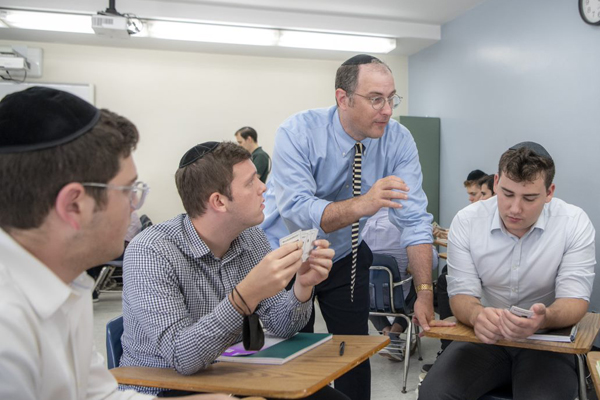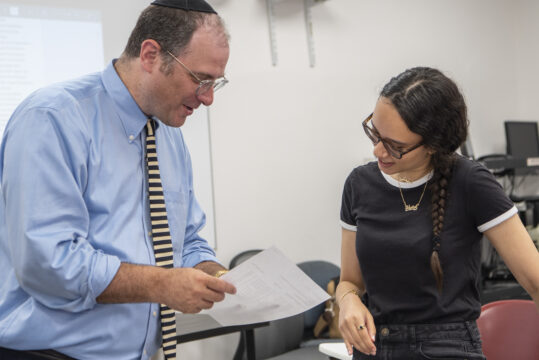Nov 28, 2022 By: yunews
 Professor Marc Spear (center) helps Sy Syms students fine-tune a business presentation
Professor Marc Spear (center) helps Sy Syms students fine-tune a business presentation Strategizing with a student on a project pitch
Strategizing with a student on a project pitch Professor Marc Spear (center) helps Sy Syms students fine-tune a business presentation
Professor Marc Spear (center) helps Sy Syms students fine-tune a business presentation Strategizing with a student on a project pitch
Strategizing with a student on a project pitch